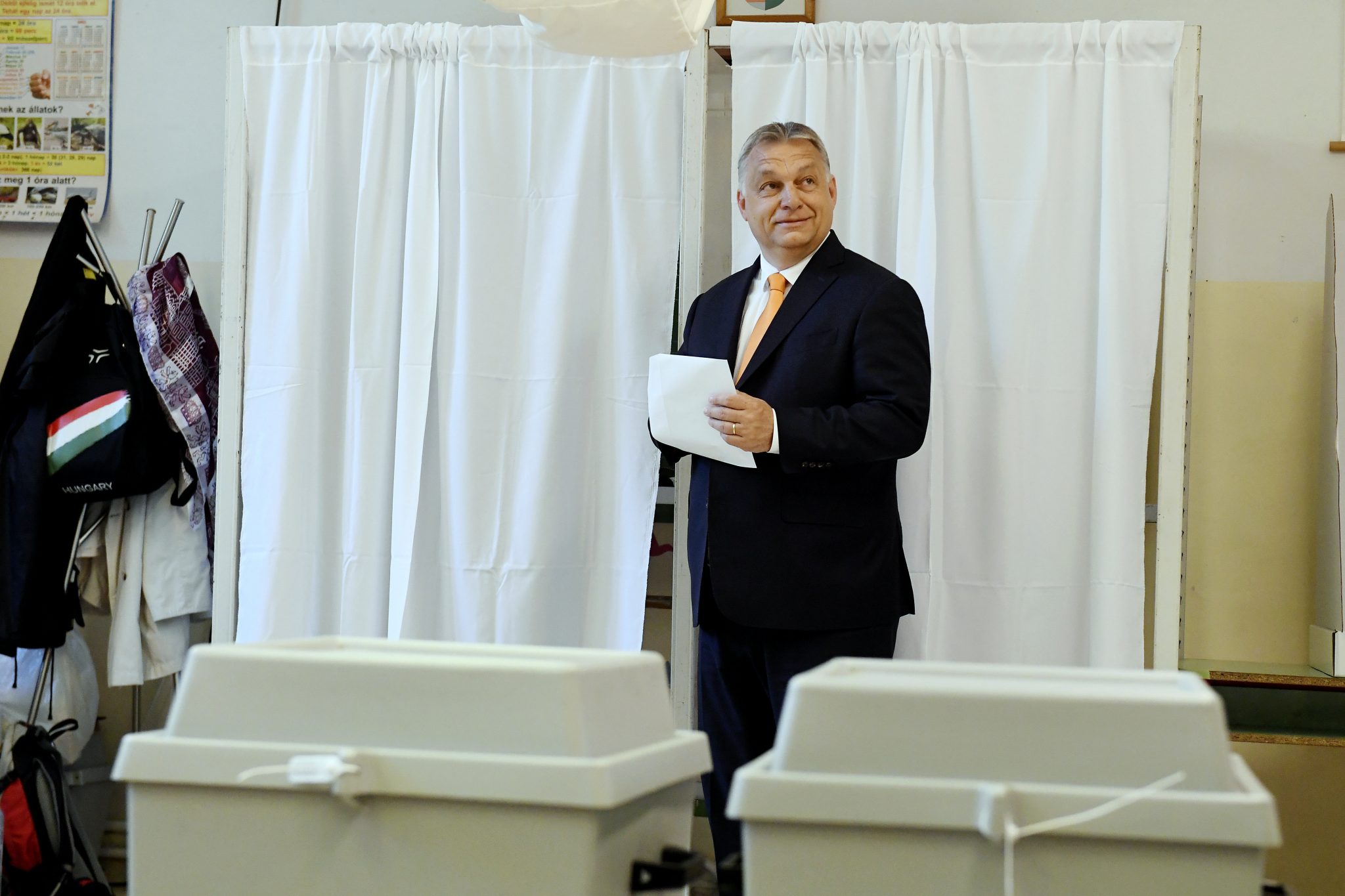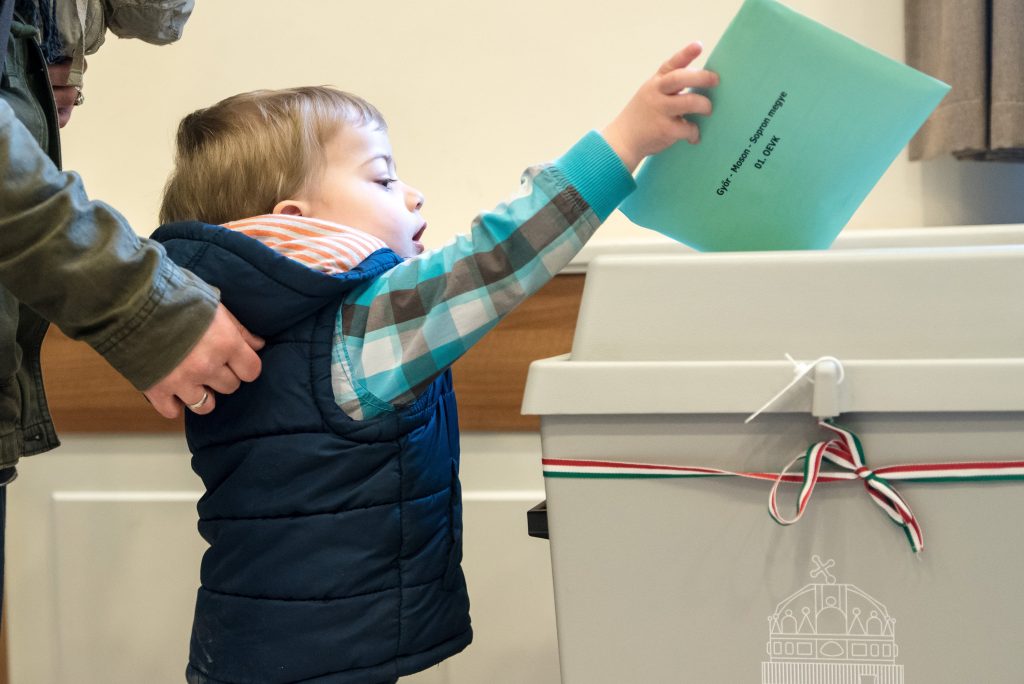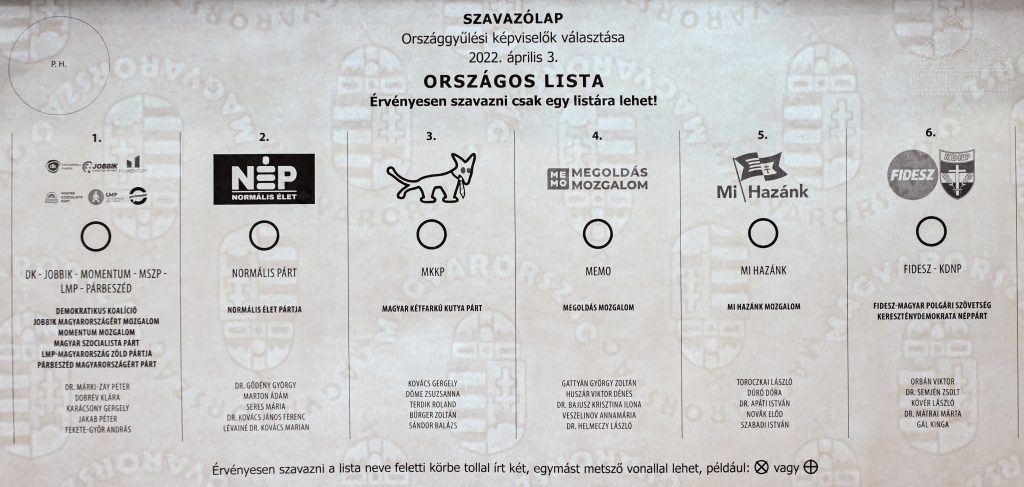
After winning three times in a row, Fidesz-KDNP's two-thirds victory is considered to be unlikely but not impossible.Continue reading

In Hungary, the 199 members of parliament are elected every 4 years. Today, Hungarian citizens can delegate 106 people to parliament as individual candidates and 93 through national party lists. The parliamentary elections will be the ninth general parliamentary elections in Hungary since the regime change (1989). At the same time as the elections, in an unusual way, a referendum will also be held on the so-called Child Protection Act. (We cover this in a separate article). The cost of the two elections is almost 21 billion forints (EUR 57m). Results are expected late this evening.
This article was originally published on our sister-site, Ungarn Heute.
To enter the Hungarian Parliament, a party must receive at least five percent of the valid votes cast. If the party does not reach 1 percent, it must pay back to the state the central subsidy it received for the election campaign. For the first time this year, a broad, six-party alliance is contesting, so the threshold for them is 15 percent, which is the maximum for a party list. For the Fidesz-KDNP two-party alliance it is 10 percent.
The following parties have a national list, i.e. these parties can be found on the ballot in the following order:

The ballot paper for the April 3 parliamentary elections. Photo by Tibor Illyés/MTI
Therefore, everyone who is a resident of Hungary can cast two votes: one for the local candidate of his place of residence, and the other for their favored party list. Those who do not have Hungarian residency but are Hungarian citizens only have the right to vote for the party list.
In principle, all adults, i.e. all Hungarian citizens over the age of 18, as well as all 16 and 17-year-olds who have reached the age of majority through marriage. Those who are not allowed to vote because of a criminal offense or because they lack or have limited legal capacity are excluded from the right to vote.
The approximately 420,000 Hungarian citizens living abroad who do not have Hungarian residency but registered before or after the 2018 parliamentary elections were automatically added to the register of absentee voters, meaning they did not have to apply for new registration. Hungarians living abroad also have until 7 p.m. on April 3 to send in their ballots by mail, but the documents can also be handed in at the foreign missions or at any polling station in the parliamentary constituency on election day.
As of Jan. 26, a total of 7.8 million eligible voters residing in Hungary should have received their registration notices by Feb. 11, according to the Jan. 26 register.
Dual citizens who are not permanent residents of Hungary also have the right to vote in the Hungarian parliamentary elections. However, they can only vote for the national lists of political parties and not for candidates in single-mandate constituencies.
A voter with a Hungarian address who states that he or she belongs to a minority may apply to be listed on the electoral register as a nationality voter in the parliamentary elections. In this case, they can vote on the nationality list and not on the party list. The declarations had to be submitted by March 18. The 13 nationalities recognized in our country are: Bulgarian, Greek, Croatian, Polish, German, Armenian, Roma, Romanian, Rusyn, Serbian, Slovak, Slovenian, and Ukrainian, however, some of them could not field a list.
In 2018, the German nationality in Hungary elected an MP, Imre Ritter, who has the same rights as other MPs.
The candidate with the most valid votes in an individual constituency becomes a member of parliament. Votes that do not count toward an individual mandate count as fractional votes and are considered in the allocation of seats on the party’s state list.
All votes of the losing candidate and all votes of the winning candidate that were no longer necessary to win the seat (i.e. the number of votes remaining after deducting the votes of the candidate with the second highest number of votes plus one vote), shall be considered fractional votes. In allocating seats via the national list, the fractional votes cast for each constituency and the votes cast for the party list are taken into account.
Fidesz received a two-thirds majority of the votes cast in the previous elections. (133 seats with 49.27%), The Left (MSZP, Együtt, DK, Párbeszéd, MLP) 38 seats, Right-wing Party Jobbik 23, Green LMP 5. The overall participation rate was relatively high at 70.22%. This was 8.49% more than four years earlier. Which means, 5.796 million out of 8.312 million voters voted in 2018.
It is expected that the National Election Office (NVI) will announce the preliminary results before the end of election night, but the legal election result will be known only after the ballot boxes are returned and the absentee ballots are counted. The results for individual constituencies will be known no later than April 9, and the nationwide results no later than April 22.
The new parliament must be constituted by May 3 at the latest. The session will be convened by the President, and the Prime Minister will be elected by the Parliament on the proposal of the President by the majority of its members. At the same session, the National Assembly will adopt the program of the new government.
The total cost of the elections to be held in 2022, which will be combined with the referendum, is estimated at around 20.72 billion forints (EUR 57m).
Featured photo illustration by Nándor Veres/MTI